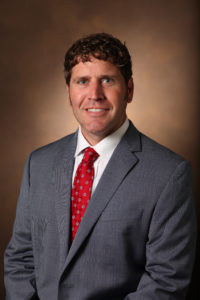Anesthesiologists are sometimes referred to as the guardian angels of the O.R. They watch over and protect patients through life-saving procedures and through critical illness in the ICUs. But their guardian role is often fleeting. After discharge from the ICU, anesthesiologists rarely see their patients. In some cases, they may not be aware of burdens that follow.

Christopher G. Hughes, M.D.
“We spend so much time fixing the medical problem in front of us that we often lose sight of the forest for the trees. We don’t want to just keep critically ill patients alive; we want to help them go back to living their fullest lives,” said Christopher G. Hughes, M.D., Associate Professor of Anesthesiology at Vanderbilt University Medical Center.
Dr. Hughes will moderate Sunday’s session featuring three colleagues who specialize in anesthesiology and critical care. They will discuss how intensive care treatment can impact patients for days, months and years after surgery.
2:45 – 3:45 p.m.
Sunday
W307ABCD
“We are getting much better at keeping people alive when they get very sick. Nearly 70% to 90% of patients will survive their ICU stay depending on the illness. That means millions of patients are dealing with recovery from a critical illness every year,” he said.
Post-intensive care syndrome (PICS) can involve physical, emotional and cognitive health problems. The most common concerns are ICU-acquired weakness, chronic pain, cognitive dysfunction and psychiatric disease.
These patients often need extended stays at rehabilitation centers and long-term skilled-nursing facilities. Some regain their pre-illness abilities; some do not. They may struggle with dressing, bathing, balancing a checkbook, managing a home, enjoying hobbies and returning to work. And survivors with PICS aren’t the only ones suffering the consequences. Entire family units can feel the strain.
Today, grassroots support groups help some of these patients understand and cope with the challenges of survivorship. Dr. Hughes believes physicians should do more to educate and prepare patients and families for the possibility of acute problems after they leave the hospital.
“It’s relevant when discussing the patient’s prognosis. Everyone needs to know what life after the ICU looks like,” he said
During this 60-minute session, Dr. Hughes and his colleagues will discuss the mechanisms that can contribute to impairment, disability and delirium. They will also share current prevention and rehabilitation strategies. While every member of the care team should take responsibility for this major public health issue, anesthesiologists have the opportunity to lead the way.
“It’s important to remember that our anesthetic decisions have far-reaching implications. We don’t always have the luxury of time in the ICU and operating room to consider all the options. But in elective surgeries, we can evaluate patients preoperatively and take steps to lessen the long-lasting effects of surgery,” he said.
With awareness and education, anesthesiologists can make survivorship more livable for more patients.
“There is certainly room for improvement in how we care for the critically ill, especially the elderly. We need to give a voice to survivors who struggle after an acute illness,” said Dr. Hughes. “They have survived. But is that enough?”
Return to Archive Index